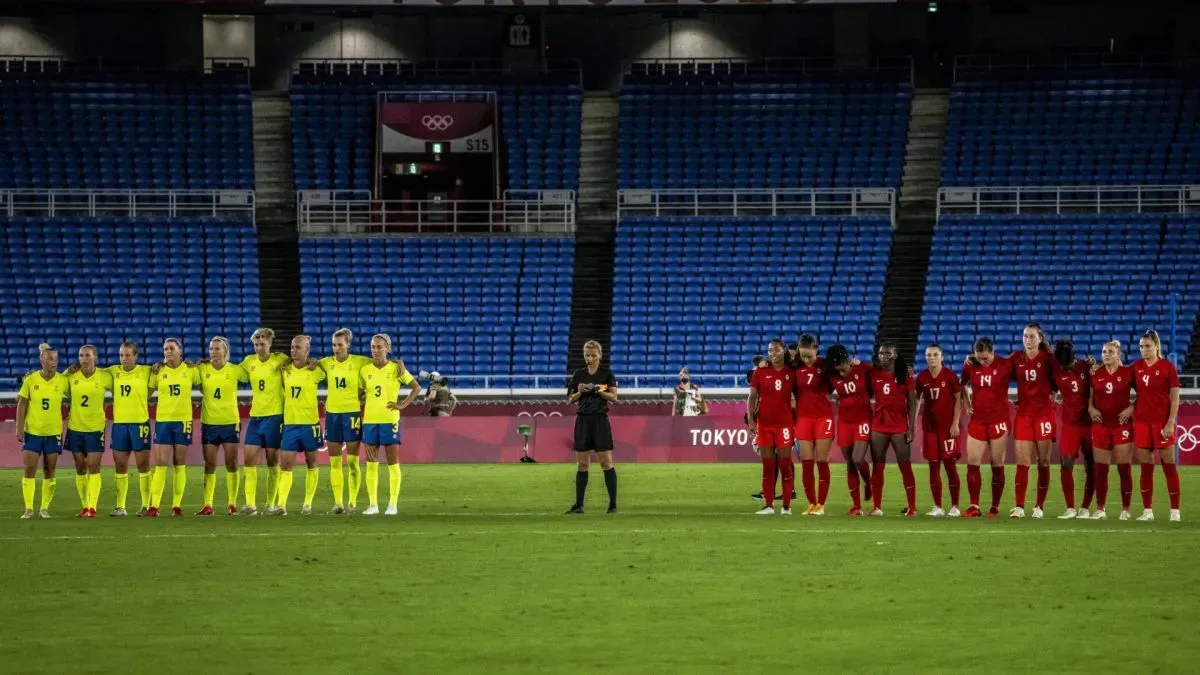Millions of people all around the world find solace in soccer, making it the most-watched sport in the world. The fact that it is a part of the Olympic Games shows how popular and important it is. But why is soccer even included in the Olympic Games?
Soccer made its first appearance in the Olympic Games in 1900 in Paris. At the time, it was only a demonstration sport. It officially became part of the Olympic program in 1908 in London. Since then, it has been a regular fixture. It was omitted from the 1932 Los Angeles Games because of its poor popularity in the US at the time.
As one would expect from a sport with such deep roots in Europe, European teams dominated the early Olympic soccer competitions. But as it progressed, the event grew in stature drawing in teams from around the globe and giving up-and-coming players a chance to shine. With the advent of the World Cup in 1930, the sport’s preeminent international tournament, this development became much more apparent.
Soccer’s significance in Olympics
The inclusion of soccer in the Olympics serves multiple purposes. Firstly, it underscores the sport’s global popularity and universal appeal. By featuring soccer, the Olympics acknowledge its status as a sport that transcends cultural and geographic boundaries. This inclusivity aligns with the Olympic spirit of bringing together athletes from diverse backgrounds to compete on a global stage.
Our Pick:Includes: Exclusive Premier League games, USMNT/USWNT & Women's World Cup in Spanish, & More |
 |
Secondly, Olympic soccer provides a unique opportunity for younger players to gain international experience. Unlike the World Cup, which features the best players from each country, the Olympic soccer tournament primarily focuses on Under-23 players, with each team allowed to include a limited number of over-age players. This format helps nurture young talent and gives emerging stars a chance to shine in a prestigious tournament.
Olympic soccer has had a profound impact on the development of the sport worldwide. It has helped popularize soccer in regions where the sport was not traditionally dominant. For example, the success of the Nigerian team in the 1996 Atlanta Games, where they won the gold medal, significantly boosted the sport’s profile in Africa. Similarly, Japan’s victory in the 2012 Women’s tournament enhanced the growth of women’s soccer in Asia.

Moreover, the Olympic tournament has served as a springboard for many players who later achieved great success in their careers. Legendary figures such as Lionel Messi, Cristiano Ronaldo, and Neymar all participated in the Olympics early in their careers, using the platform to showcase their talents and gain valuable experience.
Unique challenges of soccer in the Olympics
While soccer’s inclusion in the Olympics brings numerous benefits, it also presents unique challenges. One of the primary challenges is scheduling. The Olympic Games often clash with domestic league seasons and other international tournaments, leading to conflicts for clubs and national teams. This issue is particularly pronounced for European and South American leagues, where the soccer season typically starts around the same time as the Summer Olympics.
Another challenge is the balancing act between the Olympic tournament and the World Cup. The World Cup remains the pinnacle of international soccer, and some argue that the Olympics should focus on other sports where the Olympics represent the highest level of competition. However, the Olympic soccer tournament maintains its distinct identity by emphasizing youth development and providing a platform for emerging talents.
PHOTOS: IMAGO















